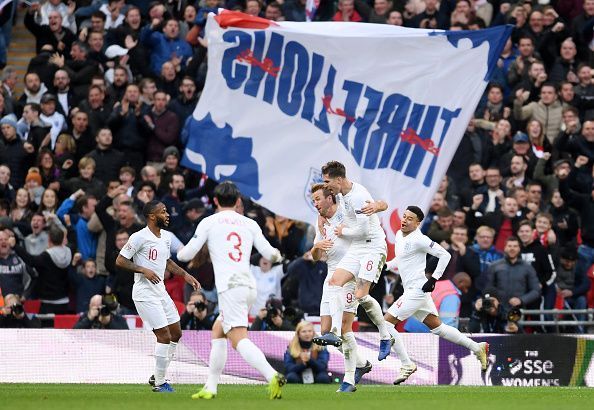
How the UEFA Nations League has rescued international football
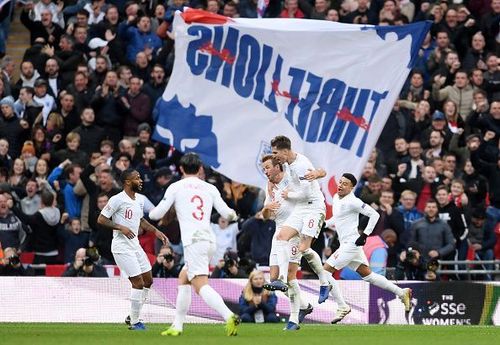
I was at Wembley yesterday; one of the thousands of fans who attended to see England’s dramatic 2-1 victory over Croatia in the UEFA Nations League. The match was the 7th England game that I’ve attended since 2003; I’ve been to 3 games at Old Trafford and 4 at Wembley, and none of the previous games had an atmosphere that came close to that which I experienced yesterday.
It could be argued, of course, that Wembley’s raucous atmosphere was largely down to the current popularity of Gareth Southgate’s young squad following their unexpected run to the World Cup semi-finals this summer. But then the first three games I attended were at the peak of the Sven-Goran Eriksson era – the cusp of Rooney-mania and that enjoyable point where the so-called ‘Golden Generation’ hadn’t quite failed to live up to their own hype. Arguably, that team were just as popular in 2003 as the current crop is now.
So what created those Wembley scenes, then? For me there’s a simple answer – the UEFA Nations League has worked. Despite some initial confusion about its format, and plenty of questions asked about its worth, UEFA’s newest wheeze – designed to remove so-called ‘meaningless’ friendlies from the international calendar – has surpassed everyone’s expectations and in years to come, may well be seen as the moment in which international football was finally rejuvenated.
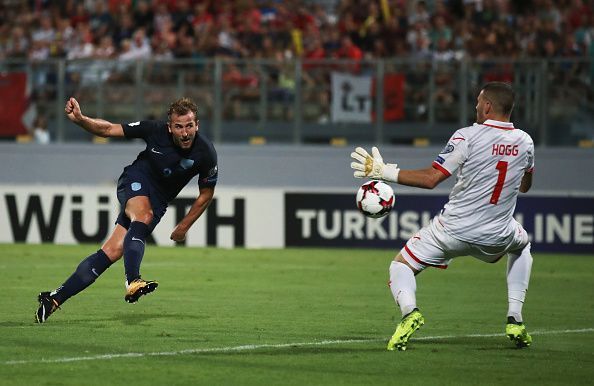
For years, football fans have dreaded the mid-season international breaks that traditionally come every September, October, November and March. Even fans who love to watch their country compete in the World Cup or European Championship every two years tended to roll their eyes at the frustrating qualifying games and in particular, the meaningless friendly games that they felt were putting the brakes on their beloved club season.
It was often with good reason, too. As an England fan, even the early Gareth Southgate days were largely tedious – the qualifiers for the 2018 World Cup were simply diabolical – one-sided games against Malta and Lithuania and dull outings against Slovenia and Slovakia simply failed to inspire anyone. Infamously, the Wembley fans – the same fans who went crazy yesterday – were reduced to throwing paper planes onto the pitch during the snoozer with Slovenia last October.
UEFA clearly saw the issue, too, and so the Nations League was born. Understandably, a lot of fans were cynical early on, feeling the format was convoluted, and despite the prizes on offer – a mini-tournament in the summer of 2019 for the group winners in League A; promotion and guaranteed Euro 2020 playoff spots for the group winners in Leagues B to D – the overall feeling was that the games would probably be friendlies under a new guise.
And then the games happened, and everything began to change. The moment in which the Nations League became a serious deal is probably different for the fans of each team; for England fans, the remarkable 2-3 win in Spain – a game which was hugely competitive – would probably be that marker. For Croatian fans, their own win in Spain to set up the crunch tie with England would work.
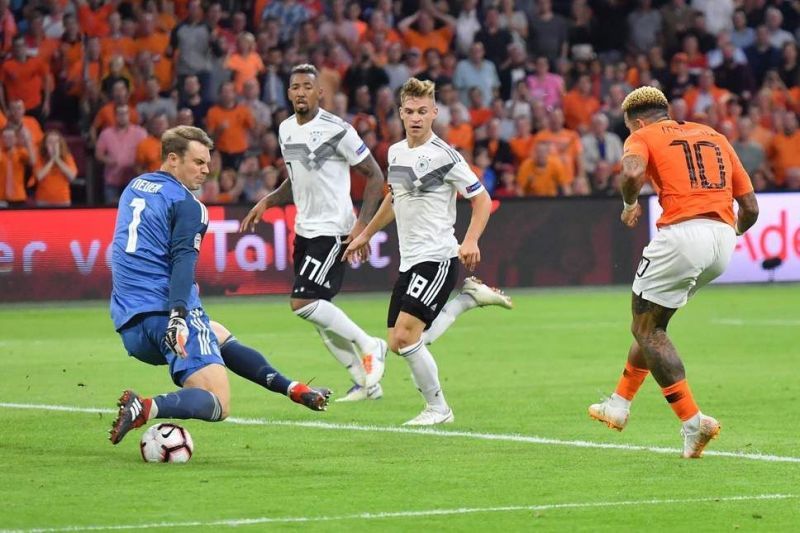
Dutch fans could point to their team’s 3-0 win over Germany – a win that brought them back from the doldrums of the previous few years; for Swiss fans, it’d be their own remarkable comeback, a 5-2 victory against Belgium that seemed impossible after the first 20 minutes saw them trail by 2 goals.
To really drill home the point, it’s easy to use England as an example again. In Euro 2012, Roy Hodgson’s side were beaten by Italy in the quarter-finals after a penalty shoot-out. Some 8 weeks later, the two sides met in a friendly game that saw England run out 2-1 victors. Did any fans – even the hardcore England support – claim some form of revenge for the Euro 2012 loss? Of course not, because the friendly game meant nothing.
Fast-forward to 2018, and yesterday’s win over Croatia. While nobody would suggest the Nations League is on the same level as the World Cup – which saw Croatia dump England out in the semi-finals – a lot of satisfaction could definitely be taken from England’s win in a competitive fixture. Likewise, there’s probably a lot of satisfaction being felt by Dutch fans right now after their side – who failed to qualify for Russia 2018 – were able to beat world champions France 2-0 last week.
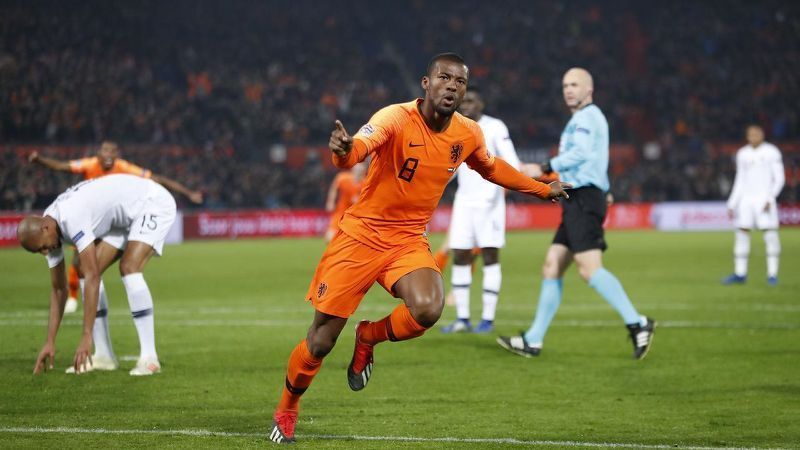
The Nations League hasn’t only been a great innovation for Europe’s biggest sides, though. We’ve seen sides like Wales, Denmark, Russia and Ukraine pushing for promotion from League B into League A in order to face off with the big boys come the 2020/21 edition of the competition, but perhaps the most seismic shift has been felt at the very bottom of Europe’s football pyramid.
League D is made up of Europe’s 16 worst-ranked teams – sides like San Marino, Malta, Macedonia and Gibraltar; essentially, the sides that fans of the bigger nations complain about having to face in those much-maligned qualifiers. Those sides usually have very little to play for in qualifiers for World Cups or European Championships because why would they? Nobody expects them to beat a Germany or a France and of course, they never do.
A lot of the time, their only goal is to attempt to prevent a cricket-type score from racking up. The Nations League though has changed things even for them. Firstly, the winners of the 4 groups – at time of writing, likely to be Georgia, Belarus, Kosovo and Macedonia – will face off in playoff games with the winners heading to Euro 2020 – a destination they’d never reach through the regular qualifiers in a million years.

Secondly, those winners will be promoted into League C – which gives them an opportunity to step up another level, and yet won’t force them to be the whipping boys for the giants of Europe. And thirdly and perhaps most importantly, the fact that these smaller sides are now regularly playing teams on a similar level has thrown up some fascinating results.
Of the 16 teams in League D, only one side – San Marino – have failed to pick up a single point. And alongside them, only Malta, Latvia and Andorra have failed to win a game. The Nations League has seen rare victories for sides like Gibraltar, Azerbaijan and the Faroe Islands, victories which surely would never have happened without the competition.
By playing sides on a similar level and actually experiencing wins, draws and close defeats rather than one-sided losses, surely these teams will begin to make improvements – however small – which might in time help to slowly give a more level playing field in competitions like World Cup qualifiers. Maybe England fans in 20 years wouldn’t dread a qualifier against a side like Armenia as they would today.
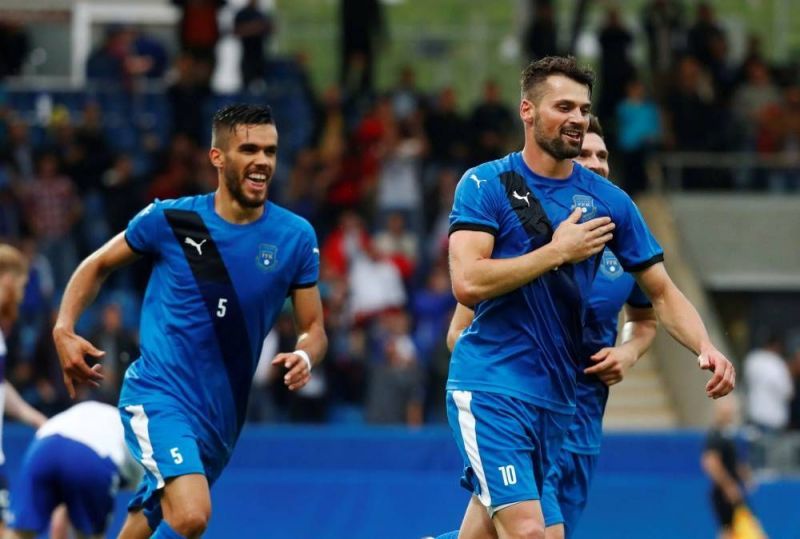
Essentially, the Nations League has not only removed pointless friendlies from the international breaks but more impressively, it’s given every European side – even the traditional whipping boys – something to play for. Who knows what kind of national heroes might emerge due to this – if they haven’t already? After all, will Gibraltar fans ever forget the name of Joseph Chipolina – who gave them their first ever competitive win in the Nations League match against Armenia?
And sure, while it might take a little longer to convince some fans of the value of the Nations League – German fans perhaps, who’ve just seen their side relegated – come the summer of 2019, where football fans would usually be treated to a qualifier or a friendly and have to wait until the summer of 2020 for an international tournament, fans of England, Portugal, Switzerland and either France or the Netherlands have a new trophy to compete for, and surely that alone is worth it?
In a world that has seen the club game become so money-driven to the point where it’s almost soulless, international football should be considered more important than ever for the future of the sport. And thanks to the Nations League and the success that it’s created over the past few months, UEFA may well have rejuvenated – and saved – the international game for good.